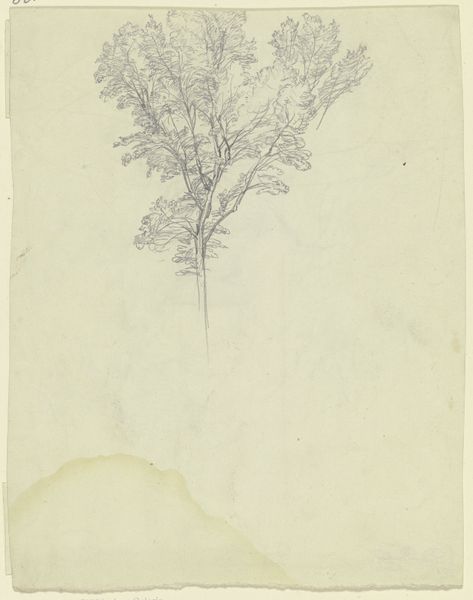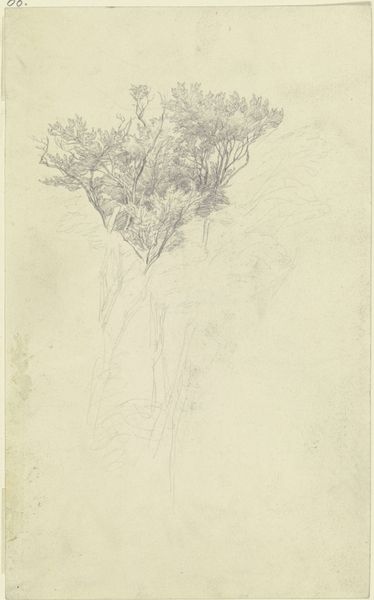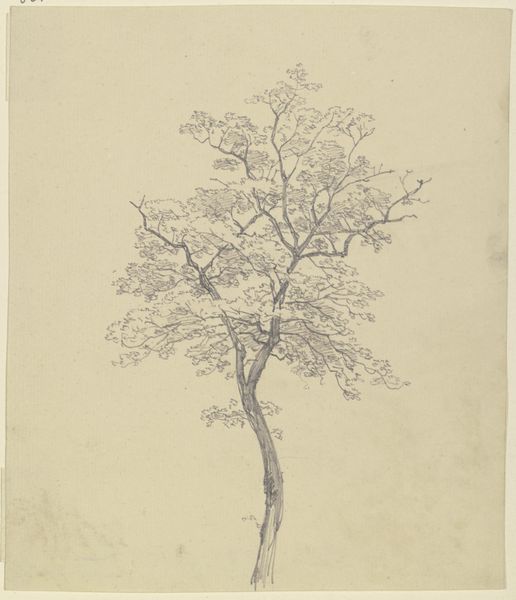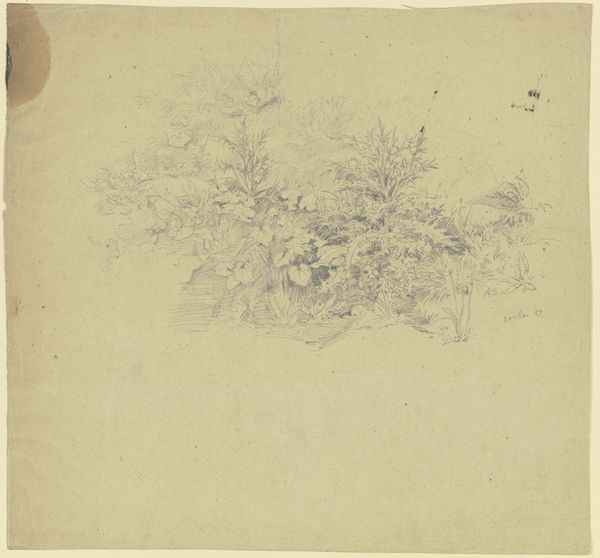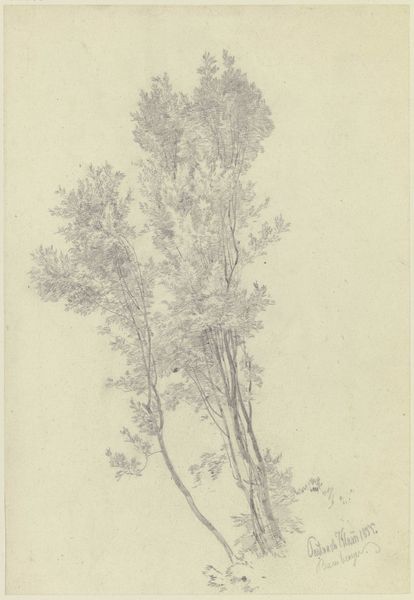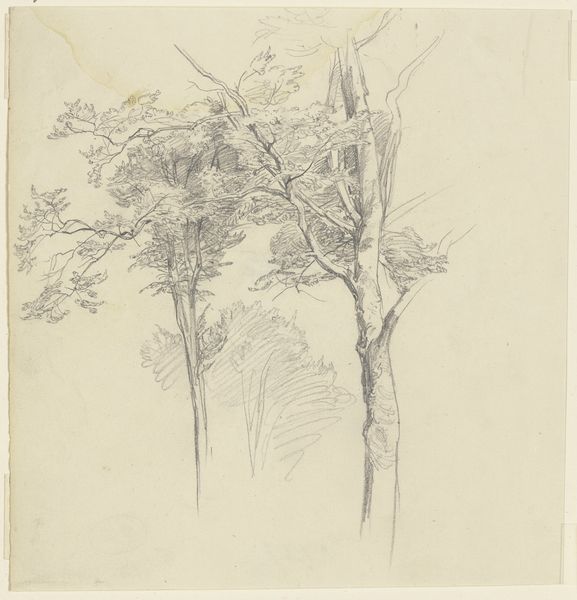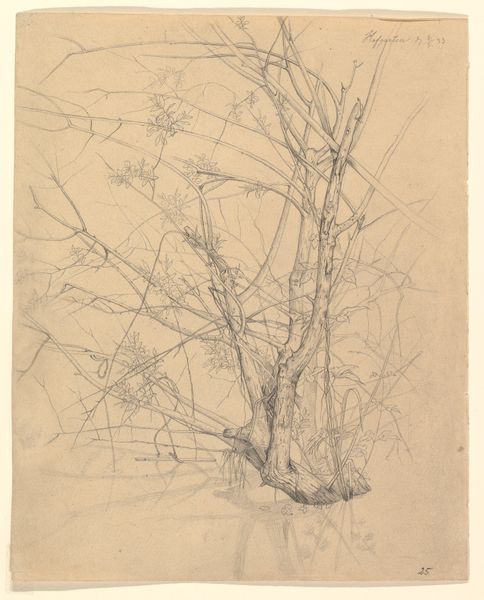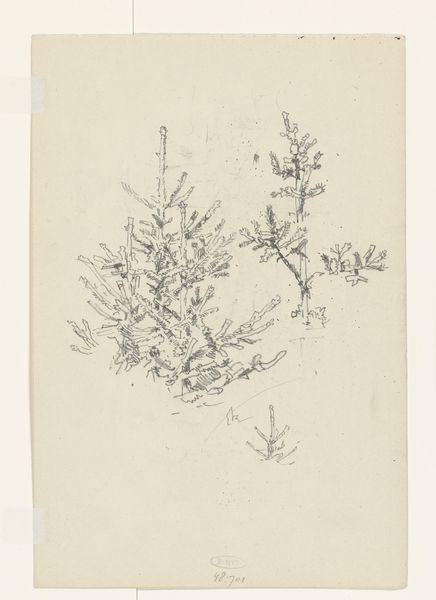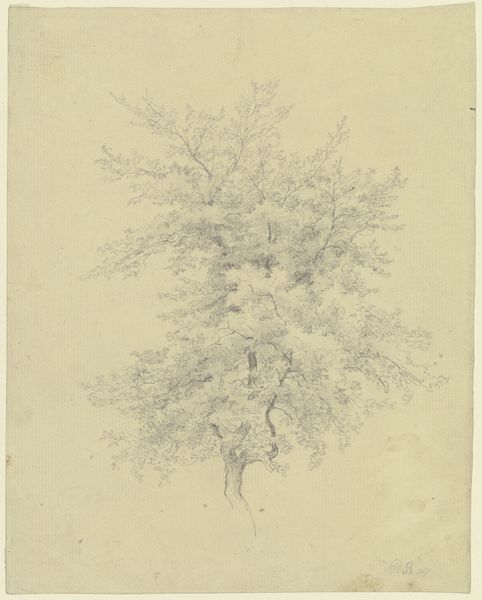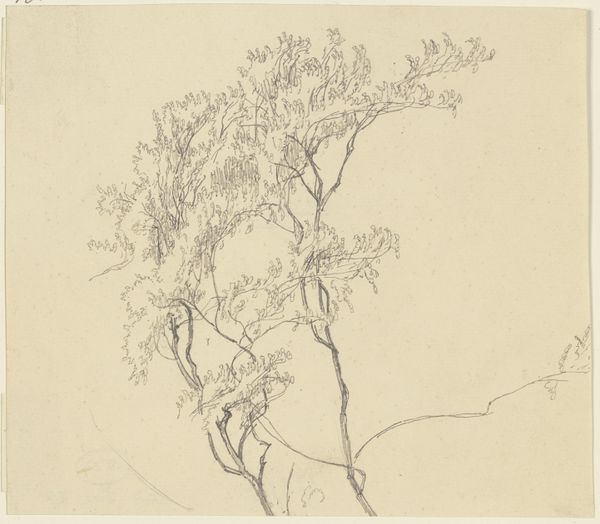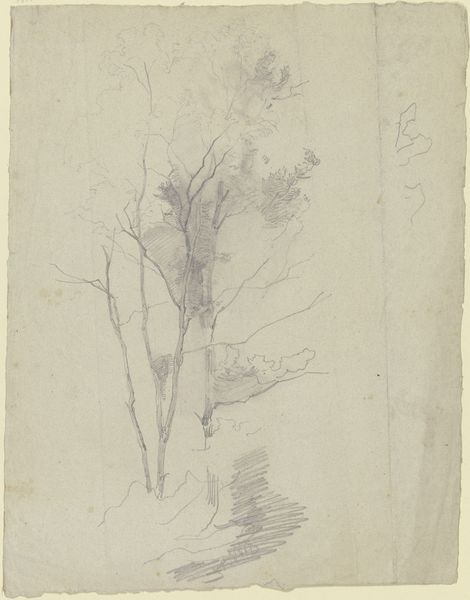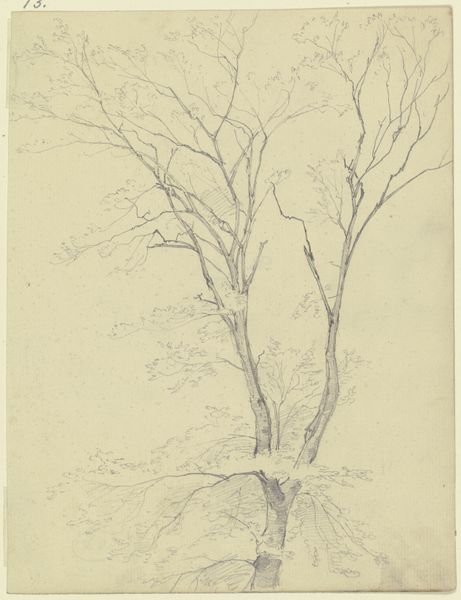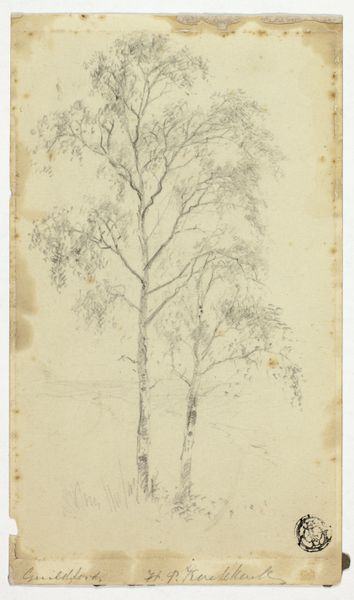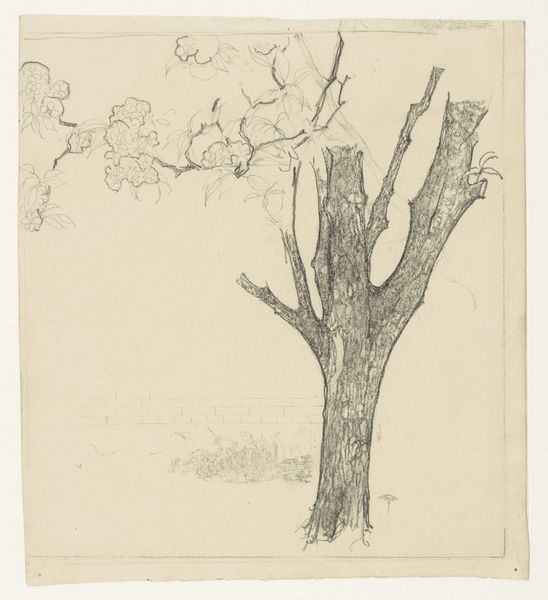
drawing, pencil
#
drawing
#
landscape
#
pencil
Copyright: Public Domain
Curator: This subtle landscape, simply titled "Treetops," offers a peek into the artistic practice of Peter Becker. We can appreciate his draftsmanship in this delicate pencil drawing currently held at the Städel Museum. Editor: It feels like a fragment, a whisper of a forest. There’s something unfinished and intimate about it. I am drawn to the lack of detail in the base of the trees against the detail within their branches, suggesting light. Curator: It speaks to a romantic tradition of sketching nature en plein air, a pursuit particularly resonant during periods of social and political upheaval. The untamed wilderness became a space for contemplation and reflection for many artists. Becker’s image certainly has some parallels, but what statement is Becker making, given its unfinished quality? Editor: Perhaps that incompleteness IS the statement. We must question the prevailing narrative of perfect finished art objects. Instead, what possibilities lie in the spaces of unfinished thoughts? Maybe these half-rendered treetops can reflect our own impermanence or the vulnerability of our environment under capitalist expansion. How are we implicated in the very consumption of art as objects that are commodities, when maybe these studies allow for alternate methods? Curator: Your points about capitalist influence are valid. The art world and museums historically, and still today, face ethical dilemmas in funding, accessibility, and representation. Consider that the landscape genre itself became highly codified and politicized, frequently reflecting the ideologies and power structures of its time. How does Becker's "Treetops," if at all, respond to this tradition? Editor: Becker subverts by denying a sweeping vista, opting instead for a modest close-up view, an encounter with treetops. Perhaps he gestures to an individualized perspective, offering agency in this limited point of view and our interaction with these natural environments. And without grand narrative, the landscape speaks for itself as an entity and as an experience, outside the lens of colonial extraction and consumption. Curator: The political weight you attribute resonates powerfully. It highlights that, in order to assess the present circumstances of our consumption of images and art, it is important to constantly and critically examine our history in conjunction with social circumstances. Thank you for drawing my attention to those layers, encouraging this reflective moment, Editor. Editor: Of course, Curator, thank you for emphasizing its origins, prompting my contemplation!
Comments
No comments
Be the first to comment and join the conversation on the ultimate creative platform.
